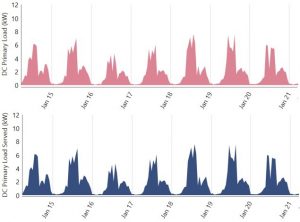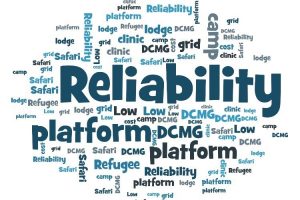Mini-grid based electrification for off-grid rural and remote areas has achieved a considerable attention among the energy poor developing nations, development partners, NGOs and donor organizations. Although Direct Current (DC) is native to Solar Photovoltaic (PV) electricity generation and some of the most commonly used off-grid appliances are inherently DC in nature, applications of DC mini-grids (DCMG) are very rare in developing countries.
Sustainable Energy Research Group (SERG) has successfully completed the research project, ‘Efficient VERsatile Energy Services Solution Through DC’. This research project, which considered Sub-Saharan Africa proposes a DCMG platform to serve rural and remote areas beyond the utility grid. Key values of DCMG along with niche applications and potential financing tools have been identified through extensive reports and literature review. Levelized cost of electricity (LCOE) from such DC mini-grids have been studied and compared with equivalent AC mini-grids and diesel grids using HOMER micro-grid simulation. Key values identified through literature review are modularity, scalability, inherent efficiency, longevity, safety and LCOE. Based on the simulation results for a small off-grid community (16kWh/d load), LCOE is predicted to be 16% cheaper with the DCMG compared to an AC mini-grid. Comparing the cost of electricity from DCMGs with the diesel grids for the identified applications, comparatively larger applications such as off-grid hospitals, telecom towers, refugee camps and safari lodges, LCOE range from USD 0.25/kWh to USD 0.42/kWh for the DCMGs and from USD1.04/kWh to USD1.30/kWh for the equivalent capacity diesel grids. Net present costs (NPC) identified and analysed in this study also show that for DCMG applications, very high initial cost of capital expenditure (CAPEX) can be offset by the very low cost of operation (OPEX) compared to the diesel grids.
The following recommendations were made:
(a) DC mini-grids for off-grid applications should be considered for appropriate locations.
(b)Extra low voltage DC transmission (≤48V DC) perhaps should be considered.
(c) For off-grid community, DC mini-grids should be combined with uses of efficient DC appliances.
(d) While serving an anchor load DC mini-grid can be used a community energy kiosk.
For more information about this project please click here
|
|
|
|



